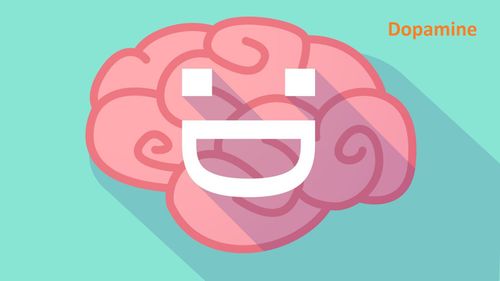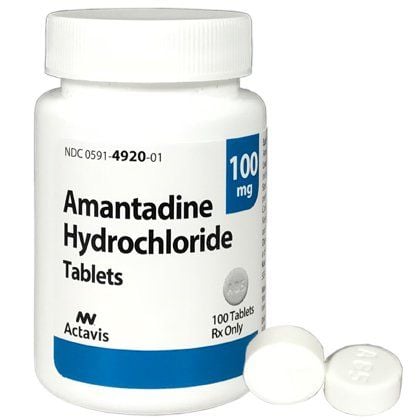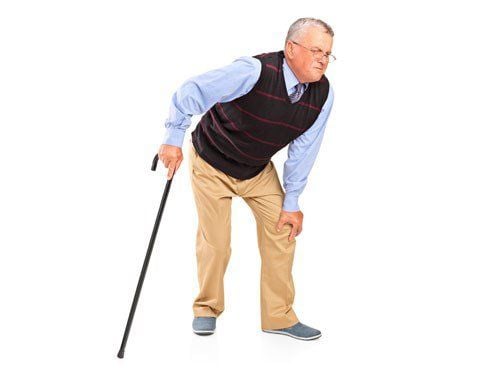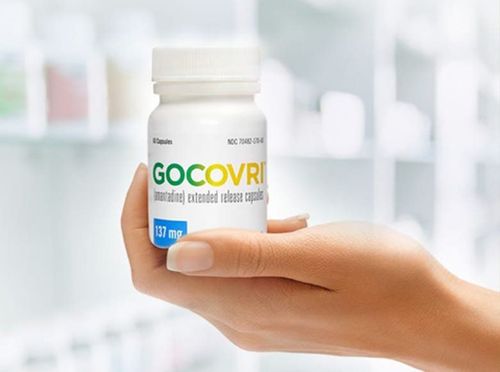This is an automatically translated article.
Apokyn Cartridge is used to treat the symptoms of Parkinson's disease. The drug can improve a patient's mobility during regular "breaks". It can reduce tremors, stiffness, slowed and unsteady movements. Apokyn Cartridge is thought to work by helping to restore the balance of a natural substance in the brain called dopamine.
1. Uses and indications of Apokyn Cartridge
Apokyn Cartridge is used to treat the symptoms of Parkinson's disease. The drug can improve a patient's mobility during regular "breaks". It can reduce tremors, stiffness, slowed and unsteady movements. Apokyn Cartridge is thought to work by helping to restore the balance of a natural substance in the brain called dopamine.
Apokyn Cartridge is used to treat exacerbations of Parkinson's disease. Medicines are not used to prevent exacerbations of the disease. Apokyn Cartridge should not be used in place of your usual Parkinson's disease medicines. Continue to take all of your medications as directed by your doctor.
Some notes when taking Apokyn Cartridge:
Read your doctor's instructions and instructions carefully before you start using Apokyn Cartridge and each time you are prescribed it again. If you have any questions, consult your doctor or pharmacist. Learn all preparation and usage instructions in the product package. If any information is not clear, consult your doctor or pharmacist. Before use, inspect Apokyn Cartridge with the naked eye for particles or discoloration. If so, do not use that tube anymore. Check the dose carefully before injecting. There are 10 milligrams of stimulant in every milliliter of Apokyn Cartridge, so if you use the wrong unit of measure, you could accidentally inject 10 times the amount you need. Make sure you have the correct dosage to prevent overdose. If you are unsure of how to measure the correct dose, consult your pharmacist before injecting. If you are using Apokyn Cartridge with a prefilled injection in it, keep track of the doses used to make sure that there is enough medicine left in the device to give you the full dose in one shot. next.

Thuốc Apokyn Cartridge được sử dụng để điều trị các đợt cấp của bệnh Parkinson
Disinfect and clean the injection site before injection. Inject Apokyn Cartridge subcutaneously as needed to treat decreased muscle movement/freeze (acute Parkinson's disease) as directed by your doctor. You may need to use Apokyn Cartridge several times a day. Do not use a second injection for the same exacerbation. The injections are spaced at least 2 hours apart. Do not inject Apokyn Cartridge into a vein. It is important to change the injection site with each dose to avoid problem areas. Therefore, choose a different injection site with each injection. The abdomen, thighs, and upper arms are the places you can choose to inject Apokyn Cartridge. Do not inject Apokyn Cartridge into areas of skin that are irritated, sore, or infected. You also need to learn how to safely store and dispose of needles and medical supplies. Never reuse syringes or needles. The dose of Apokyn Cartridge is calculated by your doctor based on your medical condition and response to treatment. To reduce your risk of side effects (e.g., nausea, drowsiness, low blood pressure) when you first start using Apokyn Cartridge, your doctor will slowly increase your dose until a good dose is reached. best for you. Your doctor will usually order your first dose at a hospital where your blood pressure can be checked and you can be monitored for side effects. Nausea is a very common side effect of Apokyn Cartridge. To reduce your risk of nausea, your doctor may direct you to start taking another medicine (for example, trimethobenzamide) 3 days before your first dose of Apokyn Cartridge and continue taking it as directed for up to 2 months. . Use Apokyn Cartridge as prescribed. If you stop using Apokyn Cartridge for longer than 1 week, you may need to slowly increase your dose again to reach your previous dose. Talk to your doctor about how to restart Apokyn Cartridge. Do not stop using this medicine without your doctor's approval. If you are using Apokyn Cartridge regularly and suddenly stop using it, you may have withdrawal symptoms such as fever, muscle stiffness, confusion. To help prevent withdrawal symptoms, your doctor may reduce your dose of the drug slowly before stopping it altogether. This should also be done if you have been using apomorphine for a long time or in high doses. Do not increase your dose or use it more often than directed by your doctor. Stop medication properly when directed by your doctor. People with Parkinson's disease may have an increased risk of developing skin cancer. Tell your doctor right away if you notice a change in the appearance or size of a mole or other unusual changes in your skin. Ask your doctor if you should have regular skin exams. Let your doctor know if your condition persists or worsens.

Hỏi ý kiến bác sĩ nếu gặp dấu hiệu bất thường trong quá trình sử dụng thuốc
2. Apokyn Cartridge side effects
When using Apokyn Cartridge medicine, you may experience some side effects of the medicine such as: redness or swelling, pain or itching at the injection site, nausea, vomiting, headache, sweating, dizziness, sadness sleeping, yawning, or runny nose. If any of these effects persist or get worse, tell your doctor right away.
Remember that your doctor has prescribed Apokyn Cartridge because he or she has judged that the benefit to you outweighs the risk of side effects. And in fact, many people use Apokyn Cartridge without experiencing any serious side effects.
Tell your doctor right away if you have any serious side effects, including:
Uncontrollable movements. Mental/mood changes such as: depression, hallucinations, trouble sleeping. Muscle cramps/spasms, swelling of hands/legs/ankles/feet. Abnormally strong urges such as increased gambling, increased sexual urges. Get medical help right away if you have any very serious side effects while using Apokyn Cartridge, including:
Chest pain Shortness of breath Shortness of breath Fast/irregular heartbeat Severe dizziness Fainting Slurred speech Vision changes Weakness on one side of the body. Some Apokyn Cartridge users have suddenly become drowsy during their daily activities such as talking on the phone, driving. In some cases, sleep occurs without a prior feeling of drowsiness. This sleep-inducing effect can occur at any time during treatment with Apokyn Cartridge even if you have been using this medicine for a long time.
So if you feel more sleepy or sleepy during the day, do not drive or engage in other potentially dangerous activities until you have discussed this effect with your doctor. The risk of affecting your sleep is increased with the use of alcohol or other drugs that can make you drowsy.
You can also experience a sudden drop in blood pressure, causing dizziness, nausea and fainting. This effect can also increase your risk of falling. This drop in blood pressure is more likely to happen when you first start taking it, when your dose is increased, or when you stand up suddenly. To reduce this risk, get up slowly from a sitting or lying position and avoid alcohol while taking Apokyn Cartridge.

Bạn có thể gặp tình trạng giảm huyết áp đột ngột khi mới bắt đầu dùng thuốc
For men, very rarely, painful, prolonged erections (lasting more than 4 hours), but if you do, stop using Apokyn Cartridge and seek immediate medical attention, otherwise these problems can cause permanent damage.
Very rarely, a very serious allergic reaction to Apokyn Cartridge. However, get medical help right away if you notice any symptoms of a serious allergic reaction, including: rash, itching or swelling especially of the face, tongue or throat, severe dizziness, trouble breathing.
Apokyn Cartridge side effects by likelihood:
Common Apokyn Cartridge side effects include:
An unusual type of movement disorder called Dyskinesia Chest pain Confusion Hallucinations Low blood pressure orthostatic - a form of low blood pressure. Visable fluid retention An itchy sensation in the mouth Dizziness Drowsiness Excessive sweating Loss of skin color Low blood pressure Nausea Pain in the throat Reaction at the injection site Runny nose Vomiting Yawning Uncommon side effects of Apokyn Cartridge drugs include:
A heart attack Angina - a type of chest pain. Chronic heart failure Complete cardiac arrest Fainting Pneumonia

Một số trường hợp hiếm gặp thuốc Apokyn Cartridge có thể gây ra các tác động đến tim mạch
QT interval prolongation on ECG Feelings of anxiety Back pain Bruising Bruising under the skin Constipation Depression Diarrhea Diarrhea Difficulty sleeping Headache Itching Joint pain Low energy Pain in arms or legs Difficulty breathing Urinary tract infection Urination Rare side effects of Apokyn Cartridge include:
Anaphylaxis Angioedema Accidental falls Mental problems due to medication Prolonged erection of the penis Skin rash A sudden onset of sleep Sudden inability to control impulsive behavior Dehydration Delusions Heart pounding or pounding Honeycomb This is not a complete list of possible side effects with Apokyn Cartridge use. If you notice other effects not listed above, contact your doctor right away.

Trao đổi ngay với bác sĩ khi bạn xảy ra các tác dụng phụ sau khi sử dụng thuốc Apokyn Cartridge
3. Precautionary measures
Before taking Apokyn Cartridge, tell your doctor if you are allergic to this medicine; or if you have any other allergies. Apokyn Cartridge may contain inactive ingredients (such as sulfites) that can cause allergic reactions or other problems.
Before using Apokyn Cartridge, tell your doctor your medical history, especially of:
Asthma Heart problems such as: Chest pain, heart attack, slow/fast/irregular heartbeat. Psychiatric disorders such as: Confusion, hallucinations, psychosis, schizophrenia. Kidney problems. Liver problems. Symptoms of low blood pressure such as fainting, dizziness, lightheadedness. Sleep disorders such as narcolepsy, sleep apnea. Stroke or other brain problems. Apokyn Cartridge may cause a condition that affects the heart rhythm that is QT prolongation. QT prolongation can rarely cause severe, rarely fatal fast/irregular heartbeat and other symptoms such as severe dizziness, fainting. But these are conditions that require immediate medical attention.
Your risk of experiencing QT prolongation may be increased if you have certain medical conditions or are taking other medicines that can prolong QT. Before using Apokyn Cartridge tell your doctor of all medicines you take and if you have any of the following conditions:
Certain heart problems such as heart failure, slow heartbeat, QT prolongation in ECG. Family history of certain heart problems such as QT prolongation in the electrocardiogram, sudden cardiac death. Low blood levels of potassium or magnesium can also increase the risk of QT prolongation. This risk may be increased if you use certain medications such as diuretics or if you have conditions such as excessive sweating, diarrhea, or vomiting. Talk to your doctor about safely using Apokyn Cartridge in these circumstances.

Thuốc Apokyn Cartridge có thể gây ra tình trạng kéo dài QT
Apokyn Cartridge can make you dizzy or drowsy and alcohol and marijuana can make you more dizzy or drowsy. So you should not drive, use machines, or do anything that requires alertness until you can do it safely. Avoid alcoholic beverages while using Apokyn Cartridge. And talk to your doctor if you are using marijuana.
Older adults may be at greater risk for the side effects of this medicine, especially falls, hallucinations and QT prolongation while taking Apokyn Cartridge.
Women during pregnancy, should only use Apokyn Cartridge when absolutely necessary. Discuss the risks and benefits of the drug with your doctor.
4. Apokyn Cartridge drug interactions
A drug interaction is a reaction that occurs when many different medicines are taken at the same time, which can change the way the medicine works or increase the risk of serious side effects from Apokyn Cartridge. Therefore, you need to keep a list of all the products you use including prescription and over-the-counter medicines and herbal products and share this list with your doctor.
Some products that may interact with Apokyn Cartridge include:
Alosetron Antipsychotics such as: chlorpromazine, haloperidol, thiothixene. Some medications for nausea include phenothiazine, metoclopramide, prochlorperazine, serotonin blockers such as ondansetron, granisetron. Medicines for high blood pressure include beta-blockers such as atenolol, vasodilators such as nitrates, diuretics such as furosemide, and thiazides. Many drugs besides Apokyn Cartridge can affect heart rate, prolonging QT, including:
Amiodarone Dofetilide Pimozide Procainamide Quinidine Sotalol Macrolide antibiotics such as erythromycin. Tell your doctor if you are taking other products that cause drowsiness including:
Cannabis Alcohol Antihistamines such as cetirizine, diphenhydramine. Sleeping pills or anti-anxiety medications such as alprazolam, diazepam, zolpidem. Muscle relaxants such as carisoprodol, cyclobenzaprine. Opioid pain relievers such as codeine, hydrocodone. Check the labels on all medicines you are taking such as allergy or cough and cold medicines because they may contain ingredients that cause drowsiness. Ask your doctor about using those products safely.

Hãy cho bác sĩ biết nếu bạn đang dùng các sản phẩm hoặc thuốc có thể gây buồn ngủ
5. What to do when using Apokyn Cartridge drug overdose?
If you or someone else has overdosed on Apokyn Cartridge and has severe symptoms such as fainting or difficulty breathing, call 911. If not, rush the patient to the nearest medical facility for help. timely care. Overdose symptoms may include: very severe nausea/vomiting, loss of consciousness.
6. How to store Apokyn Cartridge
Store Apokyn Cartridge at room temperature, away from light and moisture. Do not leave Apokyn Cartridge in the bathroom. Keep Apokyn Cartridge and all medications away from children and pets.
The syringe can be filled the night before use and stored in the refrigerator until the next day. Discard the prefilled syringe if not used within 24 hours.
Do not flush Apokyn Cartridge down the toilet or down the drain unless instructed to do so. Dispose of Apokyn Cartridge properly when it has expired or is no longer needed.
Any questions that need to be answered by a specialist doctor as well as customers wishing to examine and treat at Vinmec International General Hospital, please register for an online examination on the Website for the best service.
Please dial HOTLINE for more information or register for an appointment HERE. Download MyVinmec app to make appointments faster and to manage your bookings easily.
Reference source: webmd.com













